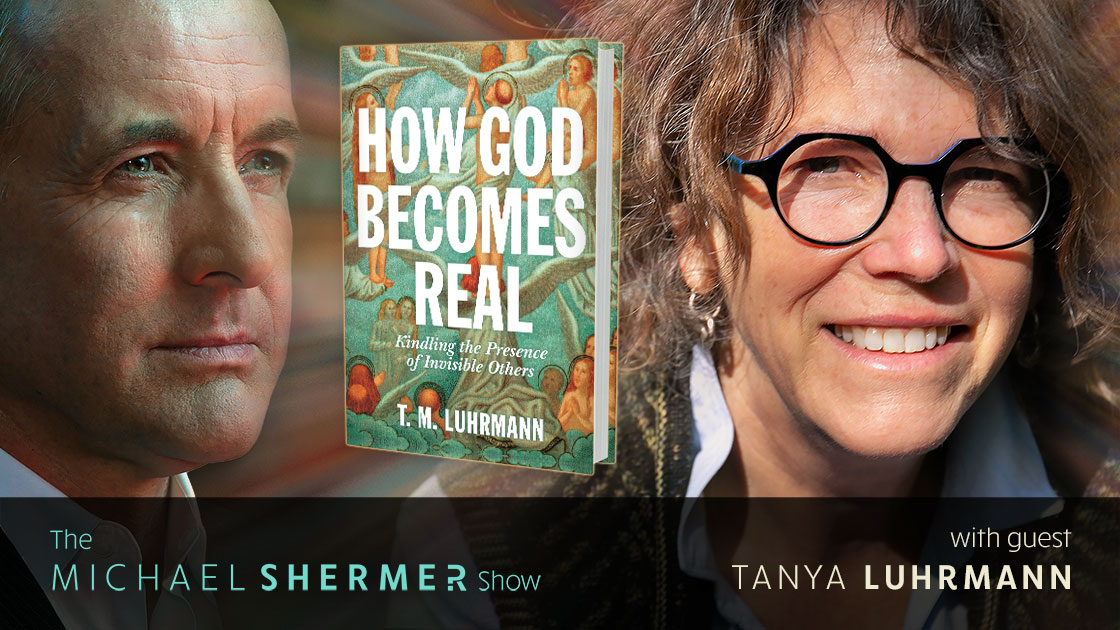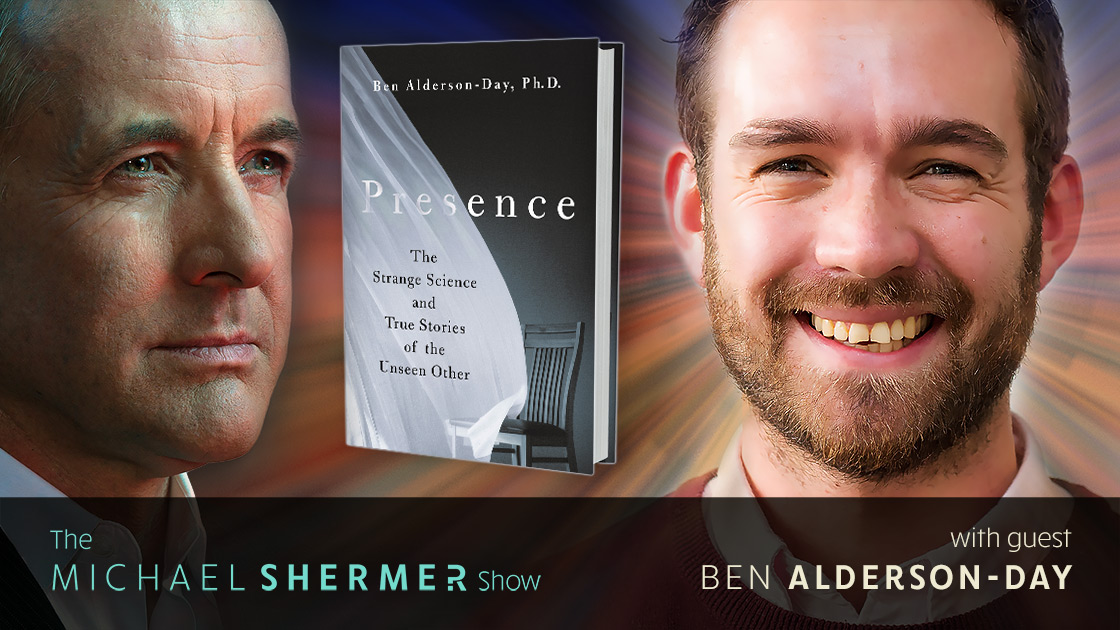
Shermer and Luhrmann discuss: the anthropology of religion • what it means when people say they “hear the voice of God” or are “walking with God” • normal “voices within” vs. hallucinations and psychoses • mystical experiences • anomalous psychological experiences • sleep paralysis and other cognitive anomalies • belief in angels and demons • absorption and religious beliefs • prayer vs. meditation vs. mindfulness • sensed presences • why people believe in God • empirical truths, religious truths, mythic truths…

Shermer and Alderson-Day discuss the psychologist’s journey to understand the phenomenon of sensed-presence: the disturbing feeling that someone or something is there when we are alone. Using contemporary psychology, psychiatry, neuroscience, and philosophy, Alderson-Day attempts to understand how this experience is possible. Is it a hallucination, a change in the brain, or something else? The journey to understand takes us to meet explorers, mediums, and robots, and step through real, imagined, and virtual worlds.
Do you know someone who has had a mind altering experience? If so, you know how compelling they can be. A life can be changed or an entire religion founded on the basis of a single brain-generated hallucination. These phenomena are so powerful that throughout history seekers of knowledge have sought to induce them. They are one of the foundations of widespread belief in the paranormal. But as skeptics are well aware, accepting them as reality can be more than…










